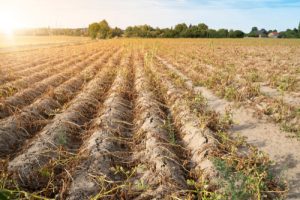
U.S. Sen. John Hoeven (R-ND) recently joined a bipartisan contingent of lawmakers requesting that the U.S. Department of Agriculture (USDA) improve disaster assistance for America’s agricultural producers.
Sen. Hoeven joined six of his U.S. Senate colleagues, including U.S. Sens. John Thune (R-SD), Steve Daines (R-MT), and Amy Klobuchar (D-MN), in seeking remedies to implement the Emergency Relief Program (ERP).
“We write to bring to your attention issues that have come up with ERP implementation and to request that USDA address these issues expeditiously,” the lawmakers wrote in a July 14 letter sent to USDA Secretary Tom Vilsack.
The ERP — the row crop disaster assistance that Sen. Hoeven helped secure and has been working to get out to producers — supports farmers and ranchers who suffered disaster-related losses in 2020 and 2021.
But, according to the senators’ letter, there are some problems. First, they wrote, many producers who, because their cause of loss was attributed to a 2019 event, have Prevented Plant indemnities that were not captured under ERP to receive the top-up payments, even though farmers suffering losses from the same cause of loss were made eligible because the loss was attributed to a 2020 event.
“Importantly, this was not an intentional misreporting on the part of loss adjusters,” Sen. Hoeven and the lawmakers wrote. “Rather, this was a situation where there was no uniform guidance on how to attribute losses that may have occurred over an extended period of time or have resulted from a number of events.”
The second issue relates to how certain producers’ adjusted gross income is calculated in order to be eligible for the higher payment limitation under the program, according to their letter.
“We understand that there are some problems with the implementation of this rule,” wrote Sen. Hoeven and his colleagues. “We understand an update in the FSA [Farm Service Agency] handbook could clarify matters to ensure this is remedied, and we would urge you to make this update.”
Finally, the senators also pointed out that producers who purchased supplemental crop insurance coverage must wait to receive ERP assistance until the fall, while many producers who did not purchase such coverage may have already received their ERP assistance.
“We urge you to consider expediting ERP assistance to these producers who purchased supplemental coverage in order to not disincentive their decision to purchase higher levels of coverage, which should be encouraged,” they wrote.



